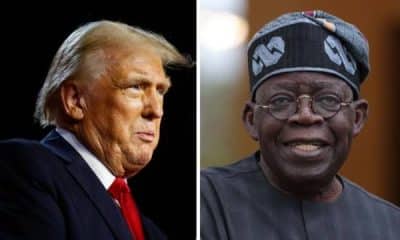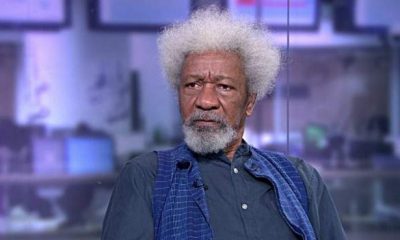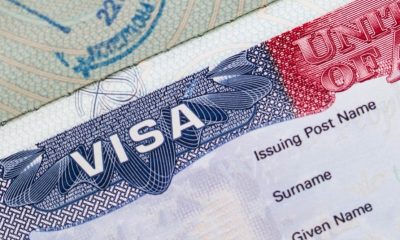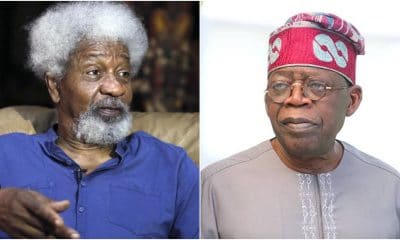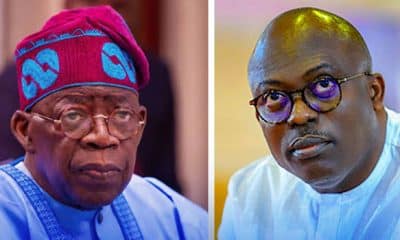Nigeria News
Wole Soyinka going back to America, after tearing his green card


Professor Wole Soyinka is set to return back to United States of America less than a year after he left the country over the emergence of Donald Trump as President.
The Nobel laurette had last year torn his Green Card in protest against the victory of Trump who had defeated the widely favoured Hillary Clinton.
The respected playwright and poet will be delivering the Richard D. Cohen Lectures at Harvard University Centre for African Studies from November 14 to November 16.
Soyinka had in an interview with Financial Times of London published at the weekend said, “I’ll go in as an alien, an alien from outer space. I love that designation,” The lectures will be in three parts, under the theme: ‘BEYOND AESTHETICS: Use, Abuse and Dissonance in African Art Traditions’.
The first part, The Acquisitive Eye: ‘Oga, I swear its Original Fake’ will be delivered on November14.
On November 15, Soyinka will speak on: ‘Heirs to the Procreative Deities – the Yoruba at Large’. The talks end on Thursday November 16 with the third lecture: From Aso Ebi to NYWOOD.
The venue for the three lectures is Thompson Room, Barker Center, 12, Quincy Street, Cambridge, MA. Richard Cohen lectures.
Before Trump became president, Soyinka had spent much time in the US, where he taught at a number of universities and lived in California with his wife, Folake.
“My life has been involved with the Diaspora on a very personal and visceral level,” he said of his interaction with prominent African-Americans.
Donald Trump’s election marked an end to his US sojourn. In what has become known among Nigerians as “Wolexit”, when he dropped his Green Card.
“To have some redneck ride into power on the steed of racism was for me too much,” he told the Financial Times.
In a statement in 2016, he had stated why he chose to drop the Green Card. According to him “I was in New York during the run-up to elections. I watched this face, its body language, listened to his uncouth, racist language, his imbecilic harangues, the insults to other peoples, other races, especially the Hispanics, Africans and Afro-Americans, even citing once – I was told – Nigeria as an instance of the burdensome occupation of global space. I watched and listened, disbelievingly, since this was America, supposedly now freed to a large extent – as we like to believe and have a right to expect – from its lamentable history of racism.”

